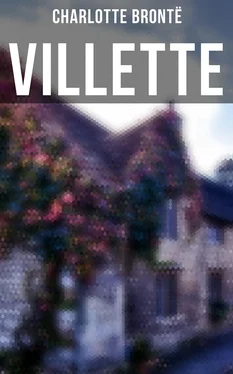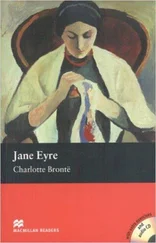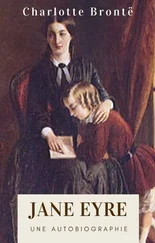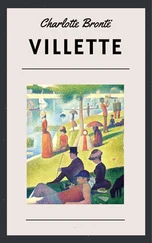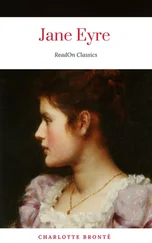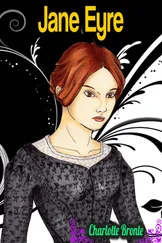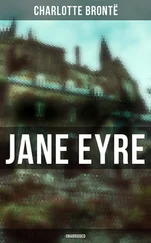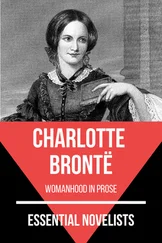Nine was striking by St. Jean Baptiste’s clock; day was fading, but it was not dark: the crescent moon aided little, but the deep gilding of that point in heaven where the sun beamed last, and the crystalline clearness of a wide space above, sustained the summer twilight; even in my dark walk I could, by approaching an opening, have managed to read print of a small type. Easy was it to see then that the missile was a box, a small box of white and coloured ivory; its loose lid opened in my hand; violets lay within, violets smothering a closely folded bit of pink paper, a note, superscribed, “Pour la robe grise.” I wore indeed a dress of French grey.
Good. Was this a billet-doux? A thing I had heard of, but hitherto had not had the honour of seeing or handling. Was it this sort of commodity I held between my finger and thumb at this moment?
Scarcely: I did not dream it for a moment. Suitor or admirer my very thoughts had not conceived. All the teachers had dreams of some lover; one (but she was naturally of a credulous turn) believed in a future husband. All the pupils above fourteen knew of some prospective bridegroom; two or three were already affianced by their parents, and had been so from childhood: but into the realm of feelings and hopes which such prospects open, my speculations, far less my presumptions, had never once had warrant to intrude. If the other teachers went into town, or took a walk on the boulevards, or only attended mass, they were very certain (according to the accounts brought back) to meet with some individual of the “opposite sex,” whose rapt, earnest gaze assured them of their power to strike and to attract. I can’t say that my experience tallied with theirs, in this respect. I went to church and I took walks, and am very well convinced that nobody minded me. There was not a girl or woman in the Rue Fossette who could not, and did not testify to having received an admiring beam from our young doctor’s blue eyes at one time or other. I am obliged, however humbling it may sound, to except myself: as far as I was concerned, those blue eyes were guiltless, and calm as the sky, to whose tint theirs seemed akin. So it came to pass that I heard the others talk, wondered often at their gaiety, security, and self-satisfaction, but did not trouble myself to look up and gaze along the path they seemed so certain of treading. This then was no billet-doux; and it was in settled conviction to the contrary that I quietly opened it. Thus it ran — I translate: —
“Angel of my dreams! A thousand, thousand thanks for the promise kept: scarcely did I venture to hope its fulfilment. I believed you, indeed, to be half in jest; and then you seemed to think the enterprise beset with such danger — the hour so untimely, the alley so strictly secluded — often, you said, haunted by that dragon, the English teacher — une véritable bégueule Britannique à ce que vous dites — espèce de monstre, brusque et rude comme un vieux caporal de grenadiers, et revêche comme une religieuse” (the reader will excuse my modesty in allowing this flattering sketch of my amiable self to retain the slight veil of the original tongue). “You are aware,” went on this precious effusion, “that little Gustave, on account of his illness, has been removed to a master’s chamber — that favoured chamber, whose lattice overlooks your prison-ground. There, I, the best uncle in the world, am admitted to visit him. How tremblingly I approached the window and glanced into your Eden — an Eden for me, though a desert for you! — how I feared to behold vacancy, or the dragon aforesaid! How my heart palpitated with delight when, through apertures in the envious boughs, I at once caught the gleam of your graceful straw-hat, and the waving of your grey dress — dress that I should recognise amongst a thousand. But why, my angel, will you not look up? Cruel, to deny me one ray of those adorable eyes! — how a single glance would have revived me! I write this in fiery haste; while the physician examines Gustave, I snatch an opportunity to enclose it in a small casket, together with a bouquet of flowers, the sweetest that blow — yet less sweet than thee, my Peri — my all-charming! ever thine-thou well knowest whom!”
“I wish I did know whom,” was my comment; and the wish bore even closer reference to the person addressed in this choice document, than to the writer thereof. Perhaps it was from the fiancé of one of the engaged pupils; and, in that case, there was no great harm done or intended — only a small irregularity. Several of the girls, the majority, indeed, had brothers or cousins at the neighbouring college. But “la robe grise, le chapeau de paille,” here surely was a clue — a very confusing one. The straw-hat was an ordinary garden head-screen, common to a score besides myself. The grey dress hardly gave more definite indication. Madame Beck herself ordinarily wore a grey dress just now; another teacher, and three of the pensionnaires, had had grey dresses purchased of the same shade and fabric as mine: it was a sort of everyday wear which happened at that time to be in vogue.
Meanwhile, as I pondered, I knew I must go in. Lights, moving in the dormitory, announced that prayers were over, and the pupils going to bed. Another half-hour and all doors would be locked — all lights extinguished. The front door yet stood open, to admit into the heated house the coolness of the summer night; from the portress’s cabinet close by shone a lamp, showing the long vestibule with the two-leaved drawing-room doors on one side, the great street-door closing the vista.
All at once, quick rang the bell — quick, but not loud — a cautious tinkle — a sort of warning metal whisper. Rosine darted from her cabinet and ran to open. The person she admitted stood with her two minutes in parley: there seemed a demur, a delay. Rosine came to the garden door, lamp in hand; she stood on the steps, lifting her lamp, looking round vaguely.
“Quel conte!” she cried, with a coquettish laugh. “Personne n’y a été.”
“Let me pass,” pleaded a voice I knew: “I ask but five minutes;” and a familiar shape, tall and grand (as we of the Rue Fossette all thought it), issued from the house, and strode down amongst the beds and walks. It was sacrilege — the intrusion of a man into that spot, at that hour; but he knew himself privileged, and perhaps he trusted to the friendly night. He wandered down the alleys, looking on this side and on that — he was lost in the shrubs, trampling flowers and breaking branches in his search — he penetrated at last the “forbidden walk.” There I met him, like some ghost, I suppose.
“Dr. John! it is found.”
He did not ask by whom, for with his quick eye he perceived that I held it in my hand.
“Do not betray her,” he said, looking at me as if I were indeed a dragon.
“Were I ever so disposed to treachery, I cannot betray what I do not know,” was my answer. “Read the note, and you will see how little it reveals.”
“Perhaps you have read it,” I thought to myself; and yet I could not believe he wrote it: that could hardly be his style: besides, I was fool enough to think there would be a degree of hardship in his calling me such names. His own look vindicated him; he grew hot, and coloured as he read.
“This is indeed too much: this is cruel, this is humiliating,” were the words that fell from him.
I thought it was cruel, when I saw his countenance so moved. No matter whether he was to blame or not; somebody, it seemed to me, must be more to blame.
“What shall you do about it?” he inquired of me. “Shall you tell Madame
Beck what you have found, and cause a stir — an esclandre?”
I thought I ought to tell, and said so; adding that I did not believe there would be either stir or esclandre: Madame was much too prudent to make a noise about an affair of that sort connected with her establishment.
Читать дальше
